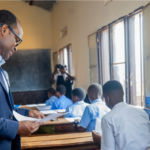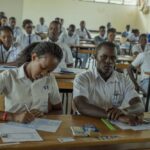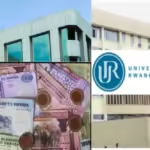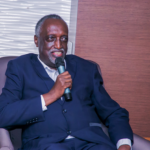The salaries of university lecturers, the quality of education as well as the management and broadening of the loan scheme for students are some of the topics that have emerged during campaigning by various candidates ahead of Rwanda’s presidential and parliamentary elections on 15 July.
Three candidates are in the running for the presidency: the incumbent president Paul Kagame, who is the chairperson of the ruling Rwandan Patriotic Front (RPF) and has been in power since 2003 after serving briefly as the acting president; Dr Frank Habineza, the presidential candidate of the Democratic Green Party of Rwanda; and Philippe Mpayimana, who is the sole independent candidate in the political contest.
Whereas RPF office bearers were not available to elaborate on its manifesto, the party emphasised that it will continue to build on its achievements as the ruling party and continue to promote quality education from primary up to university level. The other contenders have highlighted specific aspects ahead of the election.
Habineza has vowed to push for salary increments for university lecturers and academic staff if he is elected to lead the country in the next five years. Habineza is a former member of parliament of its lower chamber of deputies.
According to Habineza, higher education is facing several challenges, including low salaries, which he believes affects the quality of education.
Habineza added that improving university staff salaries would have a positive effect on staff morale, enabling them to focus on their jobs, hence improving the quality of education.
“There is challenge that when lecturers’ salaries remain low, they don’t commit fully to lecturing, they look for part-time jobs or consultancies here and there and spend less time in class, thus giving half-baked knowledge to students,” Habineza told University World News this week (8 July).
“We have a view in Africa of blaming universities for churning out substandard graduates but forget that the quality of education determines the quality of services that graduates can provide. So we must do more to improve our quality of education by properly catering to the providers of that knowledge,” he added.
An ordinary lecturer at the University of Rwanda, the largest and only public university, earns between RF600,000 (about US$458) and RF700,000 (approximately US$535) per month, while a senior lecturer earns RF980,000, which is about US$748. Private higher education lecturers earn slightly lower salaries.
“In recent years, people have been complaining that many graduates don’t know what to do and can’t even write an application letter. This is because of poor training provided at various universities. So, we have to address this challenge to deal with this gap by increasing their salaries and benefits,” Habineza noted.
“We have to ensure university staff are motivated and produce quality graduates who will lead the country’s social economic development,” he added.
He said that part of his manifesto is also to encourage more research and to establish a research centre in each of the country’s 30 districts, to ensure more impactful research is conducted.
In a bid to improve hands-on training and ensure more graduates from Integrated Polytechnic Regional Colleges are able to create jobs, Habineza said he would set up an entrepreneurship fund to finance start-up projects.
A course in health law
He also said that he would introduce a postgraduate focus on health law and a health law module for medical schools at undergraduate level to ensure that medical students are equipped with legal skills and avoid malpractices which lead them to legal punishment, including jail terms.
He noted that, currently, medical practitioners are required to be ethical but, when they are found to be involved in malpractice, they are taken to court.
“You realise that some health practitioners from medical schools lack legal background which should be part of the package they get as students. We want to ensure that medical students study health law which will help them avoid falling into any trap and which would make them accountable if they break the law,” he said.
Loan scheme to be improved
As for the independent candidate, Philippe Mpayimana, he said more effort should be focused on improving students’ welfare by improving the students’ loan scheme.
“I will work on issues related to students’ loans to ensure that they get their living allowances on time. I will also push for possibilities to allow students from private universities to receive government sponsorship, unlike today when only students in public [institutions] receive support,” said Mpayimana.
For observers, the ideas from the contesting candidates’ manifestos can contribute to higher education.
“One can hardly predict whether the opposition party will win the elections, let alone the independent candidate, but the ideas they tabled as part of their respective manifestos are good and worth implementing. It is apparent that whoever wins elections will borrow some [of these] views and implement them,” said a political analyst who preferred not to be named.
Only two parties, the RPF and the Democratic Green Party of Rwanda are participating in the elections.
Other parties have supported RPF and endorsed president Kagame as their candidate. They include the Liberal Party, the Social Democratic Party, and the Ideal Democratic Party.
Source: Universityworldnews.com









